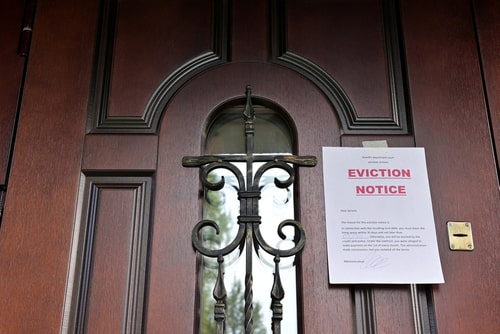 28 N. 1st St., Suite 101, Geneva, IL 60134
28 N. 1st St., Suite 101, Geneva, IL 60134
Eviction Mistakes to Avoid in Illinois
 Navigating the eviction process can be challenging for Illinois landlords. There are nuances in the law and thorough procedures that must be followed. Making mistakes can delay evictions, lead to lawsuits, and cause significant financial harm. You should be aware of the biggest eviction mistakes. An Illinois lawyer can help you with the process so you do not make the wrong move.
Navigating the eviction process can be challenging for Illinois landlords. There are nuances in the law and thorough procedures that must be followed. Making mistakes can delay evictions, lead to lawsuits, and cause significant financial harm. You should be aware of the biggest eviction mistakes. An Illinois lawyer can help you with the process so you do not make the wrong move.
Not Following Proper Notice Procedures
Illinois law requires landlords to formally notify tenants before filing for eviction. This includes serving the appropriate written notice form and waiting for the minimum notice period. For nonpayment of rent, a 5-Day Notice is required. Other lease violations need a 10-day Notice. Sending an informal warning or skipping notices altogether leads to defective filings.
Failing to Follow Up After Notice Expires
Do not assume tenants will move out when the notice period ends. You must closely track dates and immediately file for eviction after the deadline passes. Any delay gives tenants more time in your property while falling further behind on rent.
Not Using The Correct Legal Documents
There are specific Complaint forms used in Illinois eviction cases. Using outdated forms or ones for the wrong city leads to mistakes and rejection by the courts. Work with an attorney to ensure you have the right up-to-date documents for your jurisdiction.
Skipping Required Court Procedures
Even if tenants do not show up to court, mandatory steps like serving summons and scheduling hearings must occur. Tenants can appeal if you skip vital court procedures, dragging out the process. Know the required timeline and stick to it.
Taking Rent After Serving Eviction Notices
The eviction filing is typically invalidated if you accept rent payments after serving notices. You waive the ability to proceed with the eviction. Refuse partial payments unless you consult your attorney.
Improper Lockouts or Utility Shutoffs
Landlords cannot lock out tenants, move their belongings, or shut off utilities to force them out. This is an illegal eviction, and tenants can sue you for damages. Only law enforcement can legally remove tenants after getting a court eviction order.
Contact a Geneva, IL Real Estate Attorney
Avoiding these common mistakes helps speed up the eviction process and prevents major problems down the road. Partnering with an experienced Kane County, IL real estate lawyer provides the expertise to handle evictions correctly from start to finish. Do not jeopardize your rights. Call DLAW, PC at 331-222-7978 for a free consultation.


 331-222-7978
331-222-7978

